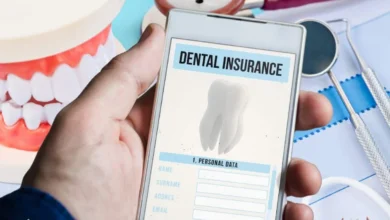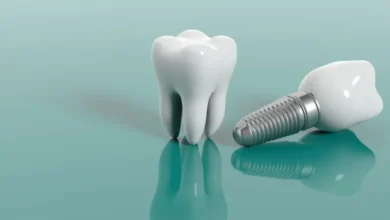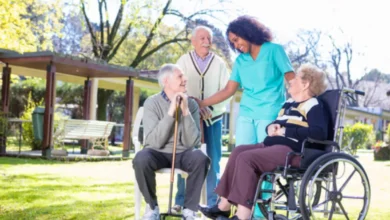The Dangers of Unintentional Weight Loss in the Elderly

As people age, weight loss and becoming too thin can be a cause for concern. While maintaining a healthy weight is important for everyone, unintentional weight loss in older adults can signal underlying health issues and lead to a variety of complications.
The following article aims to provide an understanding as to the reasons why elderly individuals may become too thin, as well as the potential risks to health. It also provides suggestions to help families and caregivers address the issue and ensure proper care.
Risks of Being Too Thin
When elderly individuals become too thin, they are at risk of developing several health complications that can negatively impact their quality of life and longevity:
- Weakened Immune System: Unintentional weight loss often results in malnutrition, which can weaken the immune system. Older adults who are too thin may be more susceptible to infections, illnesses, and slower recovery times.
- Loss of Muscle Mass: One of the most concerning effects of being underweight in the elderly is the loss of muscle mass—a condition known as sarcopenia. As muscle mass declines, strength and mobility are reduced, therefore increasing the risk of falls and injuries. Falls can be especially dangerous for older adults, as they often lead to fractures or other serious injuries that require lengthy recovery periods.
- Decreased Bone Health: Being underweight can negatively impact bone density, causing bones to become more fragile and susceptible to fractures. This is especially concerning for older adults who are already at an elevated risk of osteoporosis, a condition that weakens bones and heightens the chances of fractures.
- Nutritional Deficiencies: Weight loss in the elderly can result in deficiencies in essential vitamins and minerals, such as calcium, vitamin D, and iron, which can then cause a range of health issues, from anemia to worsening bone health and cognitive decline.
- Cognitive Decline: Malnutrition and being underweight can also have a negative impact on cognitive function. Studies have shown that weight loss in older adults is linked with an increased risk of dementia and other cognitive impairments, possibly due to insufficient nutrients needed for brain health.
Ways to Improve Appetite
Improving the appetite of elderly individuals can be challenging, but there are strategies that can help, particularly in care home settings such as the one at stpetersbury.com, where professionals are trained to address these issues:
Regular, Smaller Meals: Instead of large meals, care homes often provide smaller, more frequent meals throughout the day to make eating more manageable for seniors who may feel overwhelmed by large portions. Snacks like yogurt, nuts, or cheese can help add calories between meals.
Social Mealtime Settings: Eating in a group setting encourages social interaction, which can make meals more enjoyable. Care homes often arrange communal dining, which can stimulate appetite as seniors are more likely to eat when others are eating with them.
Appealing Food Presentation: In care homes, food is often presented in an appealing way, with varied textures, flavors, and colors to stimulate interest. Care staff may incorporate favorite foods to make meals more inviting and familiar, which can help boost appetite.
Nutrient-Dense Foods: Care homes focus on providing nutrient-dense meals, such as adding healthy fats like olive oil, avocado, or butter to foods to increase calorie content without adding bulk. This is particularly helpful for individuals who have smaller appetites but still need to meet nutritional requirements.
Addressing Hydration: Dehydration can suppress appetite, so care homes monitor water intake to ensure seniors remain hydrated. This is essential for overall health and can also help improve appetite.
Assisted Eating: For those who have difficulty feeding themselves, caregivers may assist with eating, ensuring they receive proper nutrition while maintaining their dignity.
Appetite-Enhancing Medications: In some cases, care homes may work with doctors to explore appetite-enhancing medications if other methods are not sufficient. These can be useful for individuals with chronic illnesses or medication-induced loss of appetite.
Addressing Unintentional Weight Loss
If an elderly loved one is becoming too thin, it is important to address the issue promptly. Start by speaking with a healthcare professional who can identify the underlying causes of the weight loss and recommend appropriate interventions. This may include adjusting medications, addressing dental issues, or creating a nutrition plan that focuses on calorie-dense, nutrient-rich foods.
Encouraging regular meals, providing easy-to-eat snacks, and offering favorite foods can also help increase calorie intake. For those with difficulty chewing or swallowing, consider soft or pureed foods that are easier to consume. If mental health is a contributing factor, therapy or counseling may be necessary to improve mood and appetite.
Conclusion
When elderly individuals become too thin, it can lead to serious health complications, including weakened immunity, muscle loss, and cognitive decline. Understanding the causes of unintentional weight loss and addressing them early is key to maintaining the health and well-being of older adults. Providing proper nutrition and medical care can help prevent the risks associated with being underweight, ensuring a higher quality of life.



